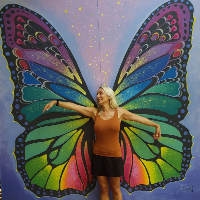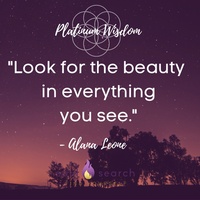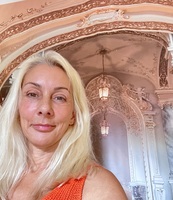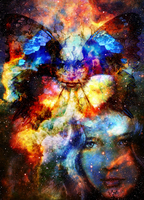
Are you in love? What is the love that we have been taught to experience from childhood to adulthood? Now is the time of holidays, and love is more freely being expressed all around us. Is this the best we can expect? Let’s look more closely at types of love.
When we watch others in what love is—how it is expressed, what behavioral patterns it elicits—we form an opinion. Then we go out to experience it … this thing called love … at school, with friends, with our parents, and with extended family.
Where did we learn how to love?
Consider the unrealistic models of love we see on television and in the movies. Happily ever after? A relationship still must consider the responsibilities of the real world. Through our life experiences, we have gained patterns and developed ways to love. Romantic love is not simply making your partner happy. Like most things in life, we learned to love from our parents and the romances they shared—or sometimes didn’t share—with others. We learned from watching and observing relationships around us, what they looked like, what they felt like, and what they sounded like. Then we went out and mimicked what we had perceived from these experiences.
What is the difference between Societal Love and Sacred Love?
First, a big part of loving another person begins with unconditional self-love. This is an immutable law of acceptance for who we are and our self-care, values, and boundaries. When we attain this level of self-love, we can then extend it out to a significant other. This is the beginning of Sacred Love.
Societal Love, on the other hand, often brings about an expectation—or separation—of love in relationships. Why? Because it is often a fabricated love based on social norms such as professing one’s love for another on Valentine’s Day. It often becomes a give-and-take of “you do this, and I’ll do that.”
What has society taught the masses about relationship love?
I think you will agree that societal love is a love of separation and looking at the person for what they have, what they lack, or what one can obtain. Societal love sees first what is different, not similar, like differences in gender, ethnicity, or such menial attributes as the beauty or weight of another person.
What we need to do is first love ourselves and see the beauty of another person’s soul first. To trust our gut instincts and intuition because they will never steer us wrong.
Unfortunately, we were not taught in school—or even in our homes in most cases—how to love ourselves, celebrate ourselves, be in the presence of another, take time to meditate, or figure out what we want in life. Instead, school ingrained in us what is wrong with everything: If you got a 98 on a test, the perception was you didn’t get 98 out of 100 right, you got 2 wrong!
Society has fed us fear; don’t trust strangers and be wary of what a person looks like. We are taught separation as masculine and feminine entities. We are emboldened with fear tactics that lend themselves to the breakup of the family unit rather than the fortitude to stay together and work on the love we have until it overflows and the desire to be with each other in a healthy way overrides all else. Only then can you fulfill the higher purpose of a union in life and community. Only then, as Dr., Bruce Lipton states, is it considered “Heaven on Earth.”
What is the ego?
The ego is basically your identity, or whom you think you are. It is a part of you that forms the basis for your beliefs and fears. It is like a physical movie that plays in the 3D world for searching for what the mental and physical being thinks it is missing. I refer to this part of us as the “separator.”
The ego looks at everything critically and analyzes what it does and doesn’t have. As the old saying goes, “The grass is greener on the other side.” The only thing is once you get to the other side with all the perceptions and patterns your ego has devised, you realize that the grass is the same color over there.
How do we begin a journey of Sacred Love?
Sacred love is a self-love journey that begins with you. And I don’t mean the information that people who live in the physical realm abide by and believe. I’m referring to pursuing love from a spiritual state where a lot of the physical information is null and void. For example, if we ask our friends who are not in a spiritual state about relationships they’ve had that didn’t last in the physical state, what information would you get other than limiting beliefs and old data?
Even when couples in conflict talk to a psychologist or marriage counselor, with all their training and schooling in the physical realm, what sense does it make? The psychologist or marriage counselor isn’t often addressing spiritual needs. This can screw up the truth of the relationship and end up reinforcing doubt and fears. In many ways, it is like comparing apples to monkeys.
Sacred Love is a union of spiritual beings living in a state of creation. To create a Sacred Love is to create a union between two people that is unconditional in nature, creating passion, respect, and conscious awareness in all communication. To be able to share heart-to-heart even if what you hear may be painful. To sit in the presence of each other’s love and sacred energy and to be in complete unity. To communicate with other people in a spiritual state and maybe not to think or care so much about others’ thought processes, physical attributes, and other conditions that define societal relationships.
How do we join in Sacred Love?
Let’s create a new paradigm of relationships to research, shall we?
Love is oneness, unity and communication and a sacred treasure to cherish in the heart and soul of another: your beloved. To be free from patterns by releasing past hurts, and unwanted reactive emotions. You are free to love yourself to the depths of pleasure. To realize that love is a choice and not only a feeling. To know that by practices and love routines, love can grow to infinite heights. To experience this type of love is exhilarating and total bliss.
See the article on the "Los Angeles Tribune Magazine."
Click the link to view.
Thank you!
Alana Leone






